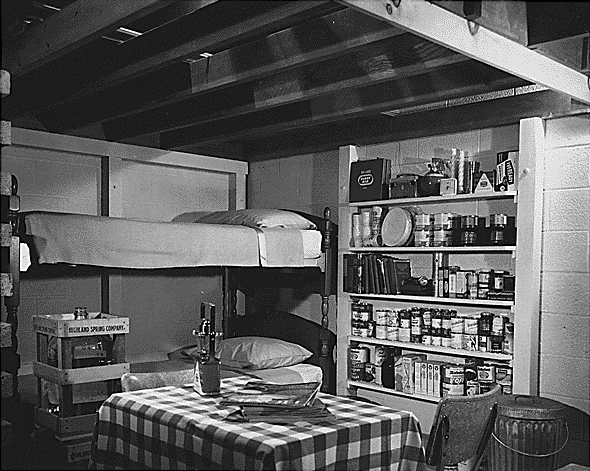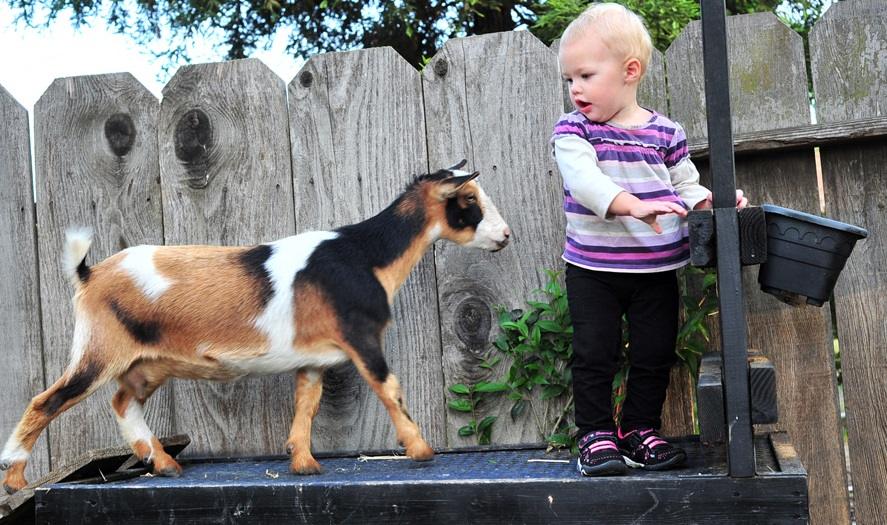
Your family’s safety may be foremost in your disaster preparedness, but remember that your pet is a family member, too — with a different set of needs.
So, make an emergency kit for your pet. The following items should be at the top of the list:
1. Sufficient supply of water
The importance of having sufficient water on board cannot be overstressed, especially with pets around. Since they do not understand the need for conserving water, and cannot express their needs verbally, they may become cranky when the normal amount of water is not available to them. If you usually keep a bowl of water around for the pet to drink at will, the absence of the same can be unsettling for it. Moreover, it’s always more dangerous to ration the drinking water for animals than for people, because the signs of dehydration are less noticeable in them.
2. Pet food
Whether it is a cat, dog, rabbit, etc., your pet should have a good supply of its regular food in the emergency kit. In addition to the regular food, for pet dogs especially, you should stock up on special treats that are reserved for rewarding good behavior during dog training. It will help them adjust to the new situation faster. Also, have a mix of wet and dry food. Wet foods are particularly useful in case you are running low on water, as they will mitigate dehydration to some extent. If your pet is accustomed to canned food, then you should buy single-serve cans to avoid unnecessary food waste. You may have power disruption, or may not even have access to a refrigerator!
3. Veterinary drugs and first-aid
Many drugs meant for people may be safely given in lower doses to pets in an emergency, but it is far from ideal. There’s a high probability of pets getting hurt when natural disasters strike. You should carry a few common drugs, such as analgesics, for relieving pain, and non-steroidal anti-inflammatory drugs (NSAIDs) to reduce inflammation resulting from minor injuries.
Re-Charge Your Laptop And Nearly Everything Else With The New Pocket Power X!
If your pet is on prescription drugs or if it has conditions requiring regular medication, it goes without saying that you should have a 2-4 weeks’ supply of those drugs. Your veterinarian may help you source them for your emergency kit.
4. Restraints and ropes
When animals are faced with disturbing circumstances, their responses are unpredictable. Even when their owners are around, they feel ill at ease in strange surroundings. After being confined to a room or the basement for long periods, they may run out the moment you open the door, quite unmindful of any dangers outside. You may have to keep them restrained at all times until normalcy is restored, or they may go and hide in inaccessible and dangerous places, or get lost. Leashes, halters or collars should be included in the emergency kit along with a long piece of rope.
5. Pet carriers

Your pets may have to travel with you on different modes of transportation, including air travel, during an emergency evacuation. Having appropriate pet carriers such as crates or boxes at hand will make transfers smooth. In some cases, the pet may have to be taken to a veterinarian by rescue operators or admitted in a hospital for treatment.
6. ID tags and papers
At times of emergencies, we cannot always have our way. Whether you like it or not, your pet may be separated from you. You may be asked to house the pet in a rescue home with a number of other pets.
It is not rare for pets to get lost during an emergency. An ID tag on the dog and papers proving your ownership, including some pictures of you and the dog together, will greatly improve the chance of reuniting with a lost pet.
7. Medical records
Keeping a copy of your pet’s medical records will help it get the right medical treatment. If the dog has to undergo surgical procedures, a record of its health status is invaluable. Sometimes you may have to admit the pet in a shelter which insists on having all its animals vaccinated. Your assurance will not satisfy them, but the proof of vaccination in the pet’s medical records will.
8. Grooming kit
Whether you are cooped up in your basement or housed in a community shelter or a hotel room, your pet will be happier if you continue with the usual grooming routine. It might be feeling out of sorts with all the recent changes, but your attention can calm it and make it feel at home.
9. Sanitary kit
This kit should have the necessary items to keep the pet and the surroundings clean and sterile. All your housebreaking efforts and potty training are put to severe test at times like these. Even the most well-behaved pet can have plenty of accidents in strange surroundings. If your dog or cat has been trained to relieve themselves outside the home, and now they are cooped up indoors, what else can you expect?
Have a good supply of disposable gloves, poop bags and bins to keep the waste.
10. Bowls for food and water
People can eat and drink directly from tins, cans and pouches when necessary, but animals may not be able to do that. Have a set of bowls to serve your pet food and water. You can pack in collapsible dishes to save space, but ensure they are stable. You don’t want more messes to clean up on top of all other troubles.
What would you add to our list? Share your tips in the section below:
Learn How To ‘Live Off The Land’ With Just Your Gun. Read More Here.










